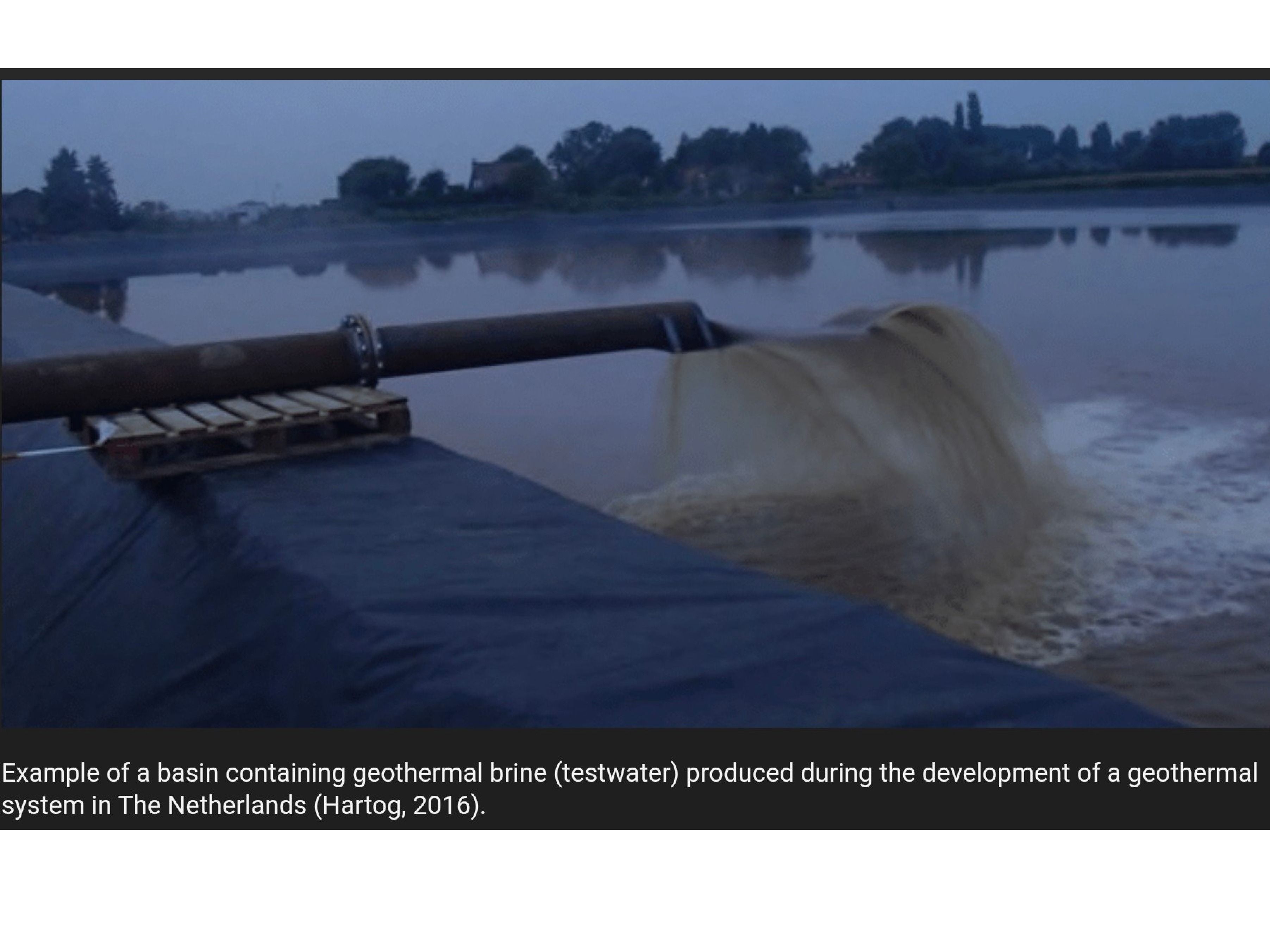
Added: Feb 15, 2021
Last edited: Feb 15, 2021
In this study the potential of freezing methods for the treatment of geothermal waste brine in the Netherlands was investigated. Based on the first analysis, modelling and experiments in this study, the use of freezing methods for the treatment of geothermal waste brines seems promising. Freeze concentration can result in significant reduction of the waste stream and the potential to produce usable water while using eutectic salt precipitation may produce significant yields of hydrohalite with economic value. The production of products (ice, salt) of high enough purite to allow re-use requires further study on actual geothermal brines with more complex brine composition than considered in this study. However, freeze concentration is already a commercially available method for brine treatment, and should be considered as an option for the concentration of geothermal waste brines.
To minimize fossil fuel combustion, geothermal heat production is increasingly applied in the horticultural sector and for domestic heating in The Netherlands. One of the major operational challenges for further development of geothermal energy in The Netherlands is dealing with the large volumes (3500-6000 m3 per well) of geothermal brine, also called testwater, that are produced during well development (Bakema et al. 2016; Hartog 2016). Since re-injection of the waste brine has so far been associated with significant risks for clogging and/or damaging the newly developed wells, finding environmentally and financially acceptable options has been challenging.
An approach that has not been considered thus far for the treatment of geothermal waste brine is the use of freezing methods, such as freezing concentration or the the relatively new eutectic freeze crystallization (EFC). These methods rely on freezing rather than evaporation to concentrate the brine. Since the freezing of water requires six times less energy than evaporation (Lewis et al. 2010), freeze concentration could provide an energy-efficient alternative. In addition, during EFC ice and subsequently salt(s) are formed separately
The results of this study clearly indicate that sodium and chloride are the main constituents to consider in the evaluation of EFC potential on geothermal brines in the Netherlands with hydrohalite as the most important potential salt yield. However, further research should focus on ways to increase the purity of the produced ice further, e.g. through the use of ice seeding. Also, the complexity of geothermal brine chemistry should be considered in more detail.
June 2019
Conference: European Geothermal Conference (EGC) 2019At: The Hague, The Netherlands
Project: Risks and Operational aspects of Geothermal Heat production and other deep subsurface activities

Cost Savings
Revenue Potential
Productivity
Innovation
Reduce Emissions (SDG13)
Minimise Waste (SDG12)
Save Water (SDG6)
Reduce Energy Consumption
Data, knowledge & information sharing
Conduct research
Develop regenerative infrastructure
Develop infrastructure to support sustainable lifestyles
Develop infrastructure to support resource cycling
Geothermal brine
High salinity
Freeze concentration
Eutectic point
Wastewater treatment
